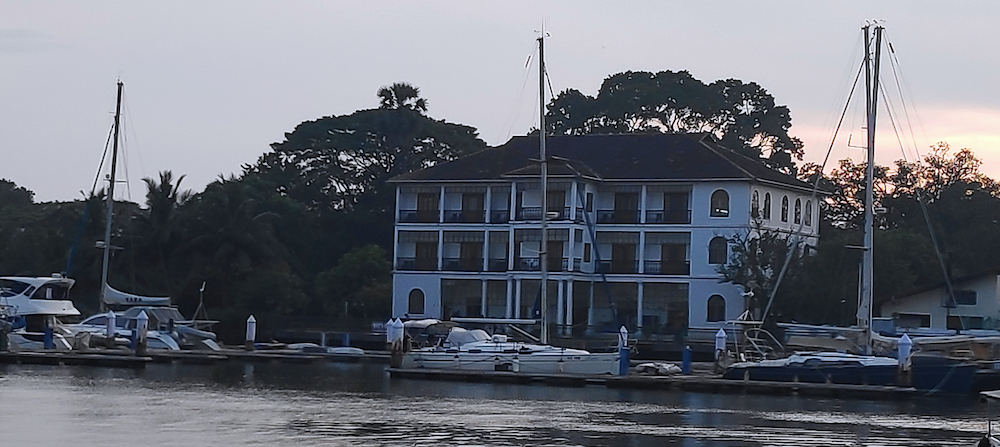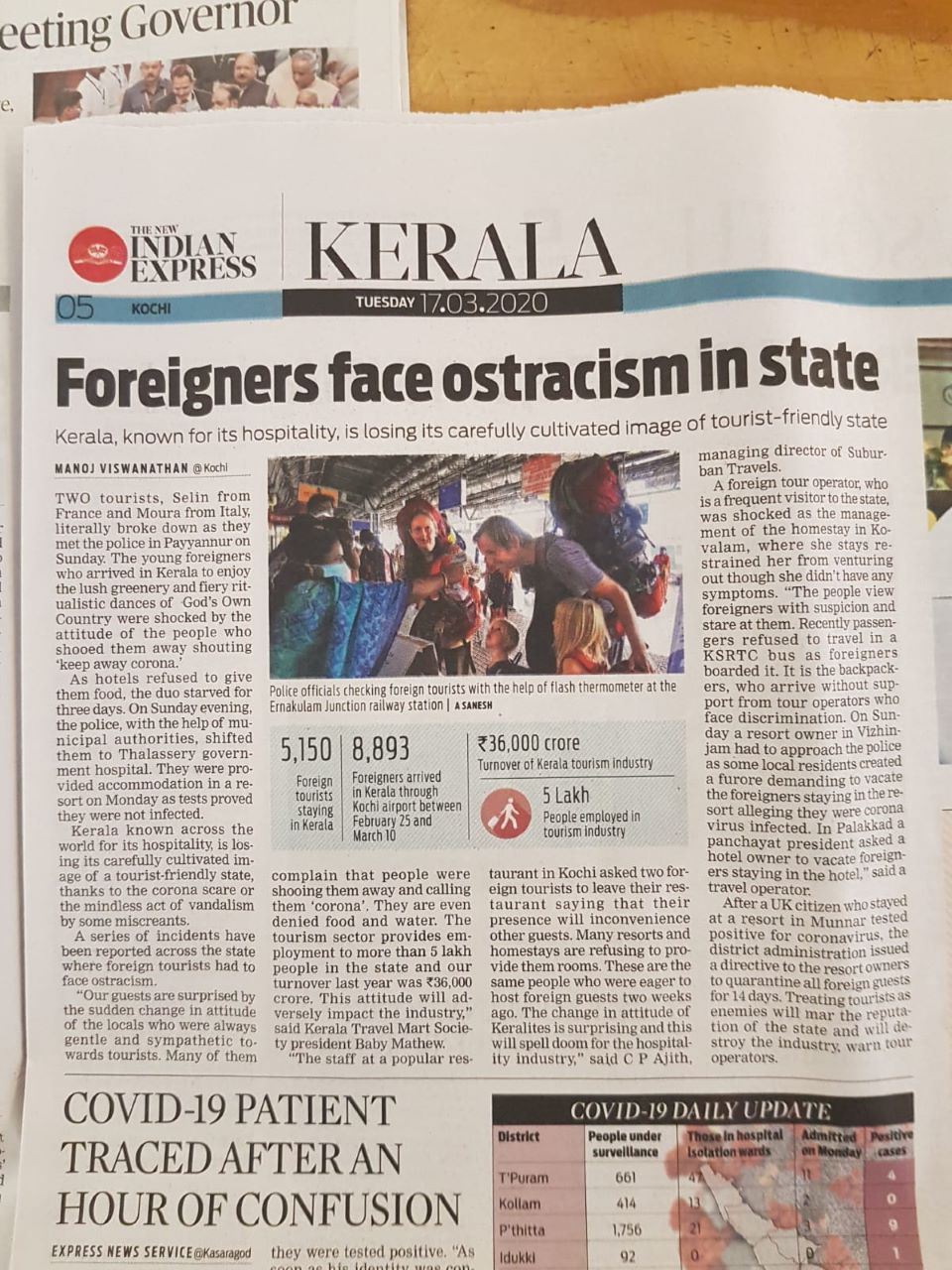
Corona Virus, Lockdowns and Curfews
As virus-beating travel restrictions eased themselves into force over the past two or three weeks, we now find ourselves back in the comfort and security onboard Aroha in Kochi Marina. Sure enough, India is going into lockdown with an increasing number of restrictions each day. We have been told that we are not allowed to leave the marina complex. It has not yet been made clear how long this will be enforced, but I’m sure there are worse places to be in lockdown.
In addition, today (22nd March) India is under a Janata (peoples’) Curfew. From 7 am to 9 pm the majority of India’s 1.3 billion people will be at home. Home for us is Aroha, so we’re staying on board. The nation has been asked to come to their balconies and windows at 5 pm to applaud those continuing to provide essential services and we’ve arranged with our marina neighbours to come to our respective foredecks (possibly with a sundowner in hand) to join in. I believe this Curfew is something of a test, to get people used to restrictions that may be much stronger in the near future, rather than for immediate practical use at slowing this virus.
The day before the shutdown we ventured to the local Lulu supermarket and were pleased to see well-stocked shelves and no panic buying. The biggest challenge was actually just getting out of the marina. The security guards turned away our first uber and then told us that the mall and supermarket are closed and that we can’t leave. A few deep breaths and a phone call to the mall confirming that they were open, and we were on our way. Body temperature reading and hand sanitiser aplenty were added to the usual security screening at the mall entrances and more hand sanitiser at the supermarket entrance. As (according to google) only 3% of Indians use toilet paper, we entertained ourselves by visiting the loo paper aisle and were reassured that there was no shortage!

It’s strange now thinking that just a few weeks ago we headed up to Goa for a long-planned one-week yoga retreat followed by a week of exploring old Portuguese Goa, and a stop in Bengaluru on the way back to our Kochi base. It seems incomprehensible now to think that we had piled into a sleeper train and happily slept in close proximity to fellow travellers, enjoying one of the iconic Indian travel experiences. Fast forward to the subsequent sleeper train to Bengaluru just ten days later- passengers wearing masks, practising social distancing as much as possible, and regarding foreigners as potential recent arriving virus carriers was a different world. Being asked for a ‘health clearance certificate’ upon checking into our Bengaluru hotel, we admitted defeat that even domestic travel has become foolhardy, and we cut this trip short and flew back to Kochi, rather than the final sleeper train as planned.
We’d booked a further trip to Assam / Meghalaya / Nagaland states in the North-East for early April, and every subsequent day the percentage probability that we’d need to cancel increased by ten or twenty per cent until it became obvious that it just would not be the responsible thing to do. Now, of course, it’s impossible due to rigid government restrictions. We were both really looking forward to the trip to this remote and little-visited area and I hope we can make this trip later in the year. Hotels, trains and air tickets were cancelled with surprising ease and I hope that we can support these same businesses when normalcy returns.
The most shocking change though was the change in the attitude of the locals. Since arriving in South India late last year we’ve received such a warm welcome, far from the stereotypes of tourist rips offs. Foreigners are now regarded as dangerous, even treated with aggression as reported in the Kerala paper. When we tried to take a local bus in Goa we were initially bluntly told “Bus is full! No more!”- an impossibility on a shuttle that leaves every ten minutes or when full. We persevered a little and soon got tickets. Fear (and a degree of ignorance) can make people do strange things.

Helen bought N99 masks last year to combat the big city pollution. We started wearing them when we were out and about amongst people, not as protection, but to show those around us we’re aware and we care about them.
Still, crises bring out the good as well as the bad, I’m pleased that we are seeing a lot a positivity and support on social media and in person. From Indian immigration assuring us that we won’t be unceremoniously kicked out when our visas expire, to the guy in Costa coffee assuring us that foreigners are still welcome in Kerala, we feel safe here.
Follow and like us to be notified of future blogs!





